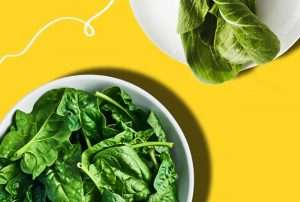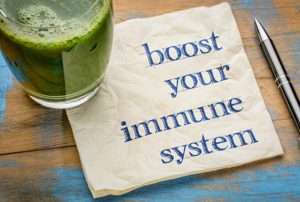10 Signs of Not Eating Enough Greens

As part of growing up to be an adult in an ever-changing dynamic environment that demands so much of our attention every step of the way, the one thing that we unanimously choose to ignore is proper nutrition for our bodies.
Tiredness, fatigue, lack of concentration, sluggishness, irritation and even mid-night cravings can all be your body’s way of telling you that you’re not eating the right kind of food or enough of it.
The number of vegetables required for an adult can depend on age, sex and level of physical activity. Typically everyone only manages to get 1 to 3 cups of vegetables per day. While the daily recommended servings are around 8-10 as per ICMR. Given below are few rough one-cup equivalents of certain vegetables to look out for
- Five or six broccoli florets
- One large sweet potato
- One large tomato
- One medium potato
- Two medium carrots
- One large sweet pepper
- One large ear of corn
It’s no secret that eating vegetables regularly can benefit your health in a myriad of ways. Every type of vegetables starting from leafy greens to beans and peas offer a variety of nutrients in extensive combos of vitamins, minerals and phytochemicals. They are also low in fats and calories and loaded with fiber and antioxidants.
Not eating enough vegetables and including enough greens in your diet can negatively affect your health.
Related Article – Guide to Super greens – Ingredients, Uses and Benefits Title
Here are 10 signs to look out for that you may not be eating enough veggies:
1. You have dull skin
Veggies have high water content so they help to keep your skin hydrated and even out fine lines and wrinkles. Lack of antioxidants can also cause the skin to appear dull. Antioxidants are compounds that reduce the effect of cell damage in the body by fighting free radicals that are produced as a result of bodily chemical reactions.
Beta-carotene is an important micronutrient found in carrots and sweet potatoes that acts as a natural sunblock to protect the skin.
Collagen is another essential protein that maintains skin elasticity. Vitamin C rich foods like broccoli, spinach, kale and lemon can help boost collagen production.
2. Your mood is perpetually low
Lack of nutrition can get you feeling low and lethargic. Most of the processed food intake gives you a surge of energy followed by a crash. These can include your white bread, pasta and sugar-induced food items.
Fresh fruits and vegetables are loaded with bioavailable multivitamins and natural minerals that can work wonders for your body. Gulping on fresh green juices first thing in the morning can uplift your mood keep you energized throughout the day.
3. Constipated
Vegetables are extremely good sources of dietary fiber that are low I calories and high on nutrients like potassium, calcium and magnesium.
Foods high on fats and sugar can be low in fiber which is key to producing more bulk in your stools and make it easy to pass through the intestine. Opting for vegetables like broccoli, peas, beans and leafy greens can help you overcome this problem.
4. Always hungry
Processed foods are high on calories that can’t keep you satiated for long. Your body absorbs them quickly and then craves for more. Vegetables on the other hand due to their high fiber content are digested slowly that helps to keep hunger at bay.
The remedy to not feeling hungry after a meal is to have the nutrients that keep on assimilating at the background while you’re still working. Nuts, seeds, legumes or a healthy blow of salads or fruits is a great way to snack after meals if hungry.
5. Frequently down with cold and flu
Vitamin C is one of the main contributors that strengthen our immunity. A weakened immune system can easily result in frequent cold and flu symptoms.
Our immune system consists of many white blood cells that keep foreign antigens like bacteria and viruses at bay. And vitamin C helps them in doing so by supporting and facilitating their growth and protection. Green bell peppers, broccoli, spinach, kiwi, orange and lemons are good sources of vitamin C to keep at hand.
6. Easily bruised or slow healing cuts
This might also be a result of low levels of Vitamin C in the body. Vitamin C aids in collagen production which is an important protein required for skin elasticity and maintenance.
Vitamin C has a host of other health benefits that you can check out here. Why do we need vitamin C.
7. Often tired
This can be due to the deficiency of iron, folate and vitamin B12 in the diet which may further result in anaemia. Vegetables like dark leafy greens, kidney beans, kale, amaranth leaves, asparagus, mint and lentils can be good sources of vitamin B and iron to rev up your nutrition.
8. Muscle cramps
Muscle cramps can be a result of low levels of potassium, magnesium and calcium. Potassium is required for smooth muscle contraction. Best vegetable sources include dark leafy greens, Swiss chards, kale, spinach and sweet potatoes.
9. Foggy memory
While occasional forgetfulness or brain fog is normal across ages, as we get older lack of nutrients can also lead to a prolonged episode of brain fogginess.
Lutein, a type of antioxidant can be helpful in reviving memory and learning. This can be easily found in tomatoes, carrots, broccoli and leafy greens. Including them in your daily diet can improve your memory and boost brainpower.
10. Impaired vision
Dark green leafy vegetables and coloured veggies like carrot and beetroots contain carotenoids which can improve eye’s visual performance and prevent age-related eye diseases.
Carotenoids like lutein and zeaxanthin have been seen to provide protective action against cataracts and prevent macular degeneration and other ageing-related eye diseases.
Related Article – 10 Reasons Why You Should Drink Your Green Juice Everyday
Final Takeaway
If you’ve been experiencing any of the above signs, its probably due to not eating enough vegetables and it is time take a closer look at what you’ve been eating. A convenient and efficient way to incorporate greens into your diet could be taking supplements to fill up the nutritional gaps.
PLIX green elixir ™ multivitamin supplement is a fast and effervescent formula that can help you reap the benefits of the greens in simply 30 seconds. All you need to do is just take a tablet, drop in a cold glass of water and drink up.
You can also buy our immunity-boosting super greens from Amazon here.














